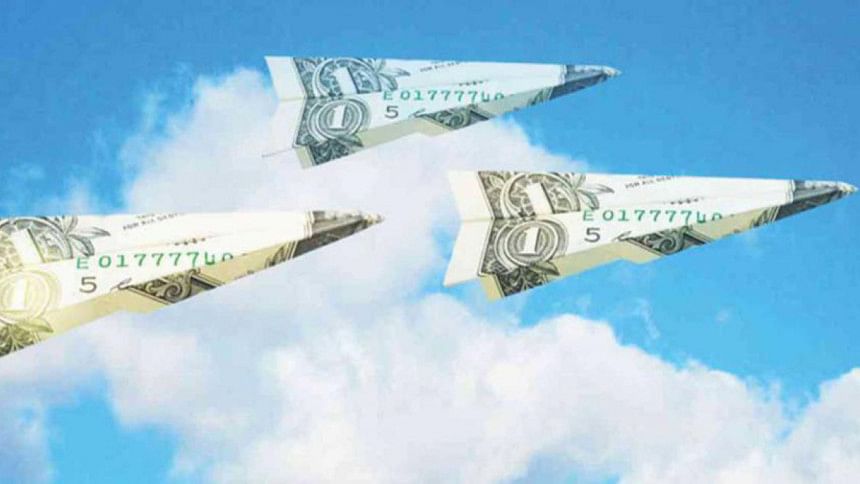Legalising laundered money to cost even less

The government is likely to bring some changes in its budget proposals, including enabling one of its three offers at legalising laundered money to require even lesser tax payments.
However, what will remain unchanged are the other two offers declaring unquestioned amnesty at legalising undisclosed assets or cash stashed in foreign shores.
This is for the first time the government placed such a proposal of giving amnesty to the undisclosed asset or money laundered outside the country in exchange of 7 to 10 per cent tax.
Economists termed it "ethically unacceptable'' as it would further encourage money laundering.
Finance Minister AHM Mustafa Kamal in his budget speech on June 9 proposed the three provisions.
One focuses on legalising any movable assets like cash or cash equivalents, bank accounts, securities and financial instruments, squirrelled away in foreign shores by paying a 10 per cent tax.
The tax percentage may now be reduced to 7 per cent.
This amendment, alongside others, would be proposed when the finance bill is passed in parliament on June 29.
Of the other provisions, one says Bangladeshi citizens who have immovable assets bought outside the country with undeclared income from Bangladesh can legalise those by paying 15 per cent of the fair market value of the assets in tax.
The remaining offer focuses on the same wealth as that of the first offer, any cash or cash equivalents, bank deposits, notes and accounts, convertible securities and financial instruments squirrelled away abroad.
The difference is that it allows bringing those back through a 7 per cent tax payment.
The proposal stated that no question would be raised by any authority including the income tax authority about the source of any undisclosed asset located outside of Bangladesh if a taxpayer pays the declared amount of tax on such asset.
The budgetary proposal drew criticism from different corners while the issue was well discussed in the media.
The economists as well as Transparency International Bangladesh have called the scope unethical, saying it would encourage more money laundering.
In his post-budget media briefing, the finance minister, however, defended his proposal saying the move is aimed at bringing back black money home and including it in the mainstream of the economy and reaping benefits.
Another change is being planned on a corporate tax cut proposal.
The government proposed slashing the corporate tax by 2.5 percentage points for all listed and non-listed companies subject to fulfilment of two conditions.
In order to be eligible for the reduced tax rate, companies must use the banking system to accept all receipts and incomes as well as carry out all expenses and investments of over Tk 12 lakh through bank transfers.
The government now plans to widen the threshold of expenses and investments to Tk 36 lakh.
Under the proposal, the corporate tax rate for the non-publicly traded company would be reduced to 27.5 per cent from the existing rate of 30 per cent.
For one-person companies, the tax rate has been proposed at 22.5 per cent against the existing rate of 25 per cent.
Meanwhile, the government may stick with its initial proposal of doubling the source tax on export proceeds to 1 per cent from existing 0.5 per cent even though exporters has been demanding retaining the previous rate.
Admitting this, a finance ministry official said exporters were already receiving more income from their exports due to an increase in the exchange rate of US dollar against the local taka.


 For all latest news, follow The Daily Star's Google News channel.
For all latest news, follow The Daily Star's Google News channel. 








Comments